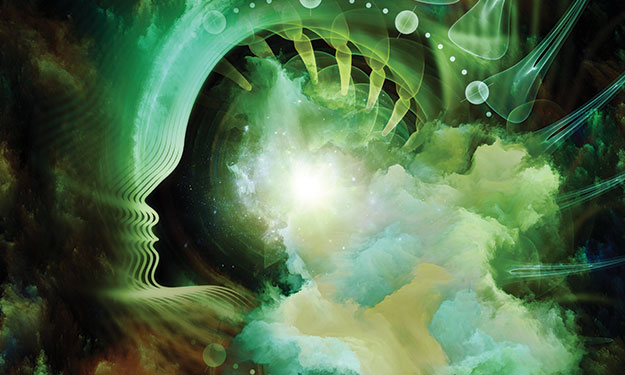Psychedelic therapy, an emergent frontier in mental health treatment, is rediscovering its place within modern therapeutic practices. From the spiritually curious to ardent psychonauts, individuals are turning to these ancient tools to mend the mind, expand consciousness, and seek a deeper connection within themselves and the universe.
This blog post aims to demystify psychedelic therapy, outlining what it is, its uses, the types and techniques involved, and how one can start this profound journey for personal growth.
What is Psychedelic Therapy?
Psychedelic therapy refers to the use of psychoactive substances, such as MDMA, psilocybin, and LSD, as a catalyst for psychological healing and growth. Unlike recreational use, psychedelic therapy is conducted in a controlled, therapeutic setting, often alongside professional guidance.
This approach has been found to be effective in treating a wide range of mental health issues, including anxiety, depression, PTSD, addiction, and existential distress.
Who Benefits from Psychedelic Therapy?
Psychedelic therapy might not be suitable for everyone, but it holds significant potential for individuals who have found traditional treatments for mental health issues ineffective. Specifically, it can offer a new avenue of hope for those suffering from severe depression, chronic anxiety, PTSD, and addiction issues, especially where conventional therapy and medication have not yielded the desired outcomes.
Additionally, individuals facing major life transitions or existential crises might find psychedelic therapy beneficial in providing profound insights and a renewed sense of connection to the world around them. It’s important for anyone considering this form of therapy to undergo thorough screening and consultation with a qualified healthcare provider to ensure it’s an appropriate option for their specific circumstances.
What Psychedelic Therapy Is Used For
Research and clinical trials (source) have shown promising results in treating a range of mental health disorders with psychedelic therapy. This includes:
- depression
- anxiety
- PTSD
- addiction
As well as fostering general well-being, emotional release, and self-discovery.
Types and Techniques of Psychedelic Therapy
The types of psychedelic therapy correlate with the substances used. The most commonly researched substances today include:
- MDMA: Often utilised for its empathogenic properties, particularly in treating PTSD.
- Psilocybin: The active ingredient in magic mushrooms, is gaining acclaim for its effectiveness against depression.
- LSD: Synthesized acid that has been studied for various uses, including anxiety associated with life-threatening diseases.
Each substance opens different pathways for healing and invokes distinct experiences. The techniques involve a combination of set (mindset), setting (environment), and integration (post-experience reflection). These factors are especially important for maximizing the therapeutic potential of the psychedelic experience.
Types of Psychedelic Therapy
Psychedelic therapy can come in different forms and approaches, depending on the individual’s needs and preferences. Some common types include:
- Individual Sessions: This involves one-on-one sessions with a therapist, typically lasting several hours, where the individual takes the psychedelic substance under supervision.
- Group Sessions: Similar to individual sessions but conducted in a group setting, allowing for shared experiences and support.
- Retreats: These are more immersive experiences, often lasting several days, where individuals participate in a program that combines therapy, introspection, and integration practices.
What Psychedelic Therapy Can Help With
Aside from addressing specific mental health issues, psychedelic therapy can facilitate a deep exploration of the psyche, emotional catharsis, and profound spiritual experiences. Psychedelic therapy has shown promise in alleviating a diverse range of psychological and emotional issues. Some of the key areas where it can offer significant benefits include:
- Severe Depression
- Chronic Anxiety
- Post-Traumatic Stress Disorder (PTSD)
- Substance Addiction
- Obsessive-Compulsive Disorder (OCD)
- Eating Disorders
- End-of-Life Anxiety
- Social Anxiety
- Trauma-Related Stress Disorders
- Existential Anguish and Life Transition Issues
How It’s Done
A typical psychedelic therapy process includes:
- Consultation: An assessment to discuss the individual’s medical history, intentions, and expectations. This consultation is used for screening and to ensure the safety and suitability of psychedelic therapy for the individual.
- Ingestion/Ceremony/Retreat: The consumption of the psychedelic, which may occur in various ceremonial or clinical contexts. Sitter, Set and Setting are crucial in this stage, as the experience is highly influenced by these variables.
- Integration: Sessions post-experience to process and integrate the insights and emotions surfaced during the trip. Integration is critical in bringing about long-term changes and providing support during the integration phase of this journey.
Benefits of Psychedelic Therapy
Participants often report a renewed sense of purpose, heightened self-awareness, an increased sense of connection, and relief from mental health conditions. They also report long-term changes, including improved emotional regulation, increased openness to experience, and a greater sense of well-being. Additionally, studies have shown that psychedelic therapy can be more effective than traditional treatments for certain mental health conditions.
Are There Risks?
While psychedelic therapy is generally considered safe under supervised conditions, potential risks exist, such as the exacerbation of pre-existing psychiatric conditions and challenging psychological experiences. Ensuring a supportive environment and professional guidance is essential to mitigate these risks. Also, do not self-medicate with psychedelics, as improper use can lead to adverse effects.
Psychedelic Research: The Future of Mental Health Treatment
The potential for psychedelic therapy to transform the field of mental health treatment is gaining interest among researchers and medical professionals. With ongoing studies, we can expect advancements in understanding the mechanisms behind these substances and their therapeutic benefits. In the future, psychedelic therapy may become a mainstream treatment option for various mental health conditions.
How to Get Started with Psychedelic Assisted Therapy
For those interested in starting their psychic healing or exploration, it’s important to research and find reputable retreats or therapists specialising in psychedelic experiences. Always ensure that the practice is legal and conforms to safety standards.
With its potential to heal and transform, psychedelic therapy is moving towards becoming a vital tool in the therapeutic landscape. Whether you are searching for healing, self-expansion, or spiritual discovery, taking informed steps towards psychedelic therapy could be the beginning of a monumental personal transformation.
Disclaimer: The information provided in this blog post is for educational purposes only and should not be considered as medical advice. Always consult with a healthcare professional before starting any form of therapy.
Please remember that research into psychedelic therapy is ongoing, and its legality varies by country and region. Always approach this remarkable therapeutic tool with respect and caution, engaging in areas where it is regulated and endorsed by professionals.



